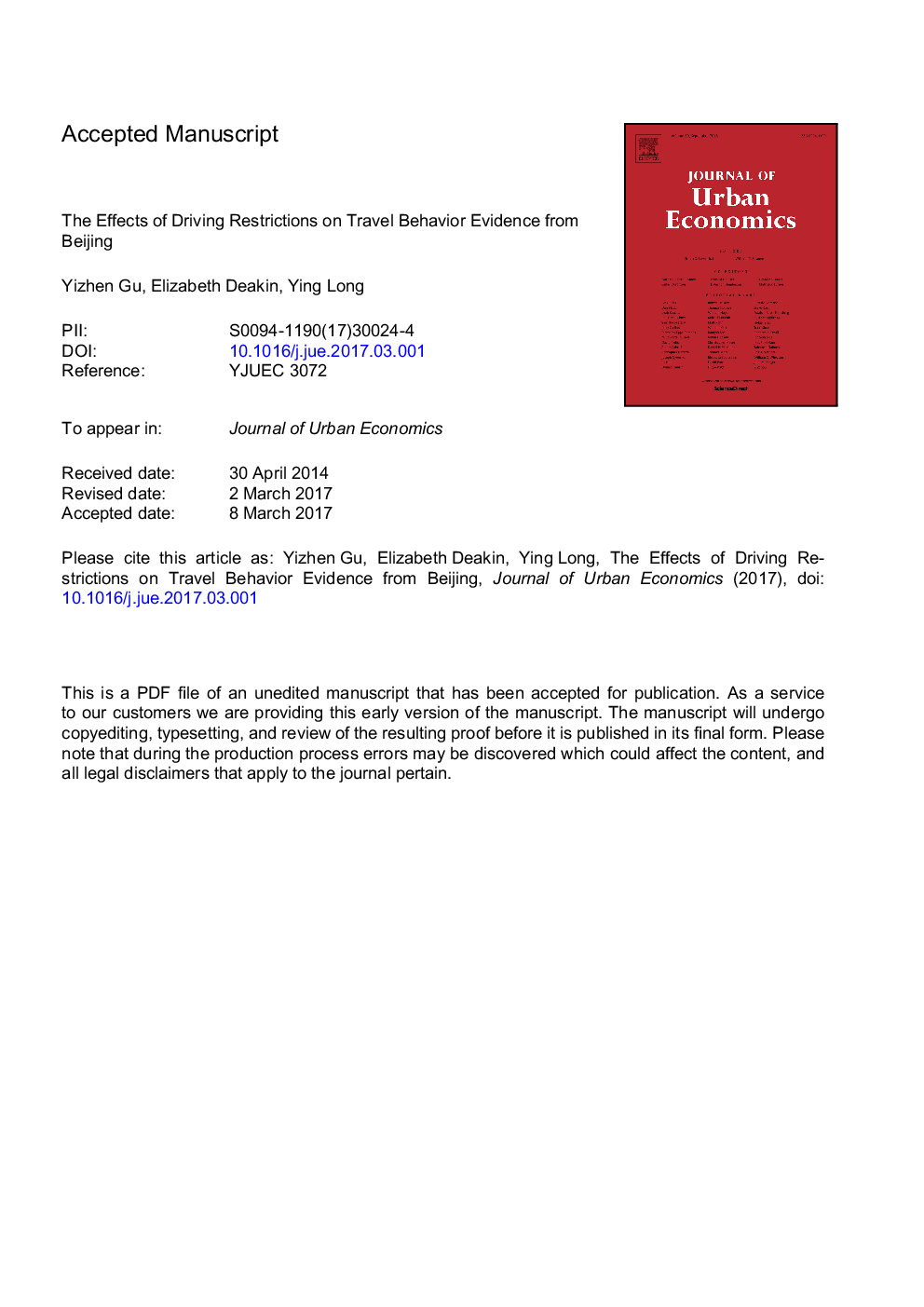| Article ID | Journal | Published Year | Pages | File Type |
|---|---|---|---|---|
| 5101913 | Journal of Urban Economics | 2017 | 49 Pages |
Abstract
We examine the effects of Beijing's driving restrictions on individual travel behavior. The restrictions prohibit drivers from using their vehicles one weekday per week on the basis of the license plate number. Using the 2010 Beijing Household Travel Survey data, we find that driving restrictions have significant effects on auto trip frequency and thus vehicle miles traveled, suggesting substitution toward other modes. We also find evidence of the differential effects across subgroups of drivers. This suggests a variation in willingness to pay for auto use, which is not addressed by the restrictions. Three adaptation mechanisms-substitution toward unrestricted hours/days, having access to an unrestricted vehicle, and noncompliance-have been at work that mitigate the policy's effect. Driving restrictions cause more congestion on days that restrict plates ending in “4” (an unlucky number) and thus have an unanticipated consequence on non-drivers, who reduce their trips on such days.
Related Topics
Social Sciences and Humanities
Economics, Econometrics and Finance
Economics and Econometrics
Authors
Yizhen Gu, Elizabeth Deakin, Ying Long,
